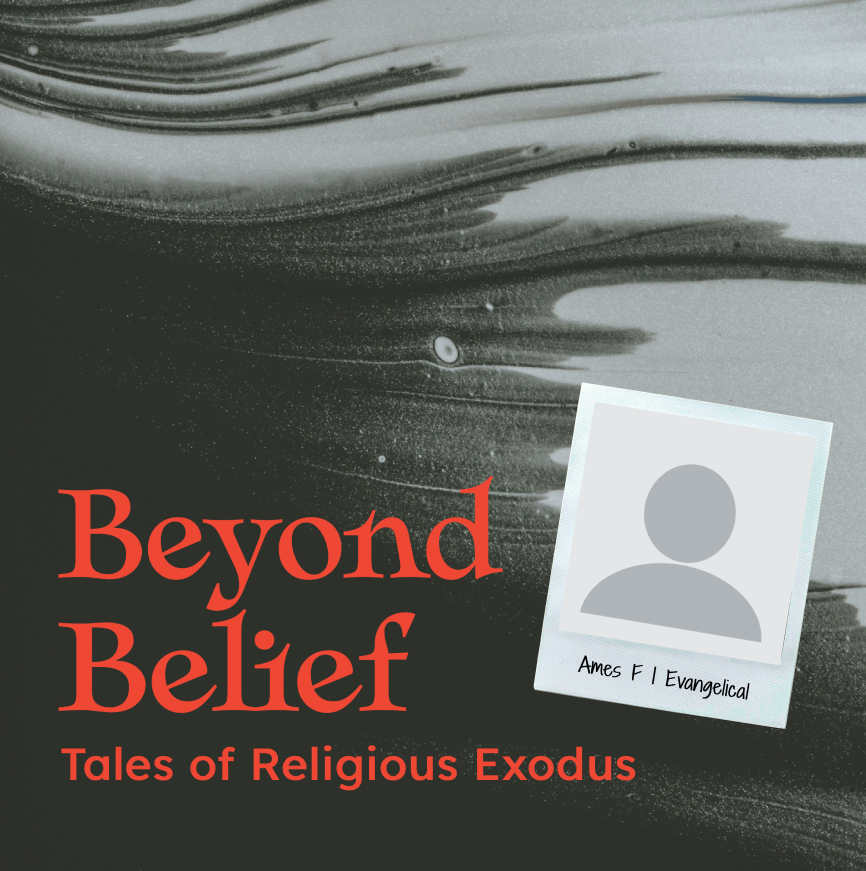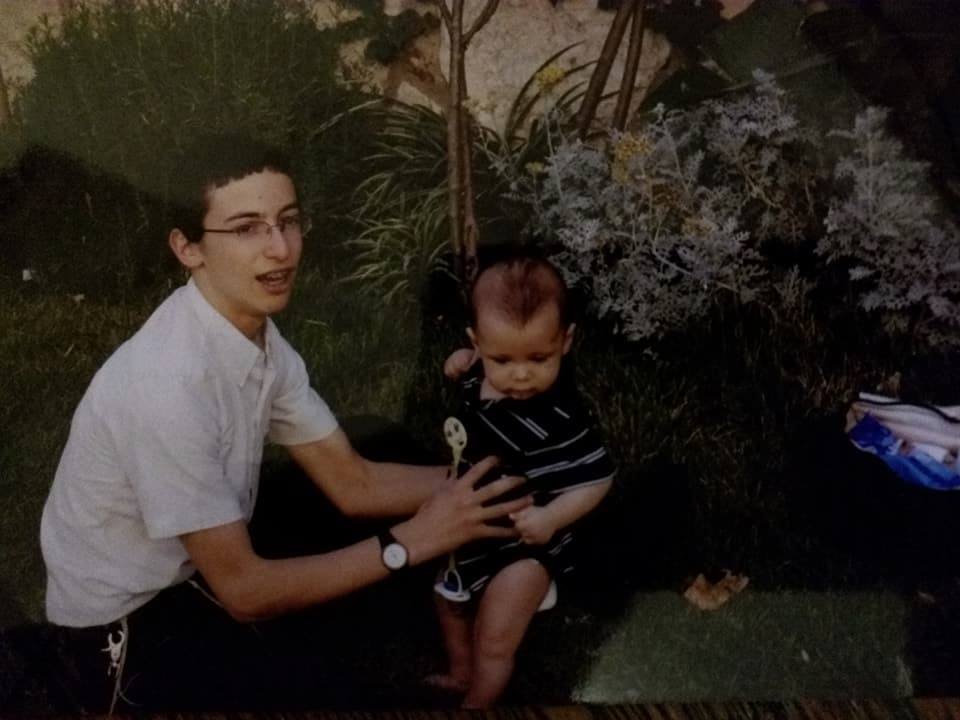In this episode of Beyond Belief, Tales of Religious Exodus, we delve into Ames’ profound journey out of evangelical Christianity. Once deeply rooted in various denominations including Protestant Evangelical, Missionary Alliance, and Pentecostal churches, Ames shares their path from devout faith to intellectual scrutiny and eventual departure. Ames discusses the impact of upbringing, personal devotion, and the intense pressure to conform.
We explore their struggle with an evangelical worldview, the role of sexuality, and the intellectual and emotional unraveling that led to their exit. Ames provides insights into reconciling faith with self-identity, the challenges of leaving a religious community, and the process of finding new meaning and joy. This deeply introspective conversation sheds light on the complexities of religious deconstruction and the courage required to embrace one’s authentic self.
00:54 Ames’ Religious Background
02:11 Personal Faith Journey
06:04 University Struggles and Deepening Faith
09:58 Intellectual and Personal Unraveling
12:38 Questioning Christianity and Sexuality
16:54 Leaving Religion and Finding Identity
31:51 Grieving and Healing
37:08 Current Reflections and Advice
48:11 Conclusion and Farewell
Podcast Summary
Our latest episode features Ames, whose story is both compelling and enlightening. Ames discusses leaving a Protestant evangelical background, navigating their sexuality and gender identity, and finding a new path in life after religion.
From Evangelical Roots to Liberation
Ames described their upbringing in various Protestant denominations, including a missionary Alliance church, non-denominational churches, home churches, Pentecostal churches, and even Mennonite gatherings. Raised by evangelical parents who placed a strong emphasis on personal devotion to God, Ames found their childhood imbued with religious practices, including prayer, Bible reading, and communal worship.
The shifting religious landscape, largely spearheaded by their parents, was guided by a fundamental belief in the evangelical mandate to share one’s faith and cultivate a personal relationship with Jesus Christ. This upbringing deeply influenced Ames’ formative years and identity.
The Intellectual and Personal Struggle
As Ames grew older, ideological and personal conflicts began to surface. A significant catalyst in their departure from evangelicalism was the intellectual realization that Christianity, for them, was a lens through which people interpret reality, not the definitive truth. Ames faced an internal struggle reconciling the Christian worldview with their own innate sense of morality and compassion for others, including the LGBTQ+ community.
The statement “no immoral person, no adulterers or homosexuals will inherit the kingdom of God” (which Ames stumbled upon in their youth) left a profound impact, inducing a deep sense of alienation and fear.
Coming to Terms with Identity
Ames’ journey of self-discovery was gradual but transformative. It wasn’t until their mid-twenties that they started confronting their sexuality and gender identity more openly. Despite the immense internalized homophobia from their religious background, Ames bravely embarked on this path of self-acceptance.
Joining atheist circles and engaging in open dialogues provided the space for Ames to explore their beliefs more freely. The conversations with non-religious friends, who offered unbiased support and insight, played a crucial role in their deconstruction process.
Unlearning and Relearning
Ames highlights the distinct challenges of transitioning from a life steeped in religious dogma to one of new-found freedom and self-expression. They speak candidly about the awkwardness and alienation felt when stepping into a world of secular norms that many take for granted. This included relearning basic social and dating skills later in life and discovering the freedoms of personal choices, such as getting a tattoo or exploring powerlifting.
Ames likens this transition to the experience of Kimmy Schmidt, emerging into an unfamiliar world and navigating it with a mix of curiosity and trepidation.
Grief and Healing
A major part of Ames’ journey was the unanticipated grief that followed their departure from religion. The loss of community, friendships, and a previously structured sense of certainty weighed heavily. However, Ames emphasizes the importance of processing this grief as an essential step toward healing and self-acceptance.
Despite the pain, this period also marked a significant phase of personal growth. Ames found solace and strength in therapy, explored their gender expression more authentically, and connected with sources of joy and fulfillment.
Embracing Joy and Authenticity
One of the most profound takeaways from Ames’ story is the shift from constant self-improvement (a byproduct of their evangelical upbringing) to embracing personal joy and authenticity. They stress the significance of seeking novelty, diving into interests and passions, and allowing oneself to live fully without undue fear or hesitation.
Words of Advice
For those on a similar path of deconstruction, Ames offers valuable advice: Seek out diverse perspectives, engage in open and honest conversations, and find people who challenge and inspire you. Trust the process, lean into the challenges, and remember that what you’re doing is brave and worthy of support.
Ames’ journey from a strict religious upbringing to a place of self-discovery and acceptance offers hope and guidance for anyone navigating similar waters. Their story underlines the importance of personal authenticity, intellectual freedom, and finding joy in life’s journey.
Thank you so much, Ames, for joining us and sharing your incredible journey. For more inspiring tales of religious exodus, be sure to subscribe to Beyond Belief. If you found this episode inspiring, please share it with others who might benefit from it.
Stay tuned for future episodes as we continue to explore the profound journeys of those who have found new paths beyond belief.









